Introduction
Sustainable agriculture is a crucial exercise that aims to satisfy the wishes of the present generation without compromising the potential of destiny generations to satisfy their personal needs (AI Boosts Agriculture Sustainability). With the advancement of the era, consisting of artificial intelligence (AI), sustainable agriculture is presently undergoing widespread modifications. In this article, we are able to explore the intersection of sustainable agriculture and AI, highlighting 50 principal points that exhibit the ability of AI in reworking farming practices.
AI plays a crucial position in reworking agriculture with the aid of presenting modern answers to the challenges confronted through farmers. It leverages gadget getting to know algorithms and large information evaluation to optimize diverse factors of farming, mainly to expand productivity, decrease environmental impact, and improve sustainability.
Precision Farming with AI
Precision farming includes using AI technologies to monitor and manipulate crops on a micro-scale foundation. AI-powered structures can gather and examine facts from sensors, drones, and satellites to offer precious insights into soil situations, crop health, and boom patterns. This permits farmers to use fertilizers, insecticides, and water exactly wherein and while needed, minimizing waste and maximizing yields.
Crop Monitoring and Disease Detection
AI algorithms can examine pix captured by means of drones or sensors to perceive early signs and symptoms of crop diseases, nutrient deficiencies, or pest infestations. By detecting these issues at an early degree, farmers can take set off action to prevent the spread of diseases and decrease crop losses. AI-powered monitoring systems also enable actual-time tracking of crop fitness, facilitating well timed interventions.
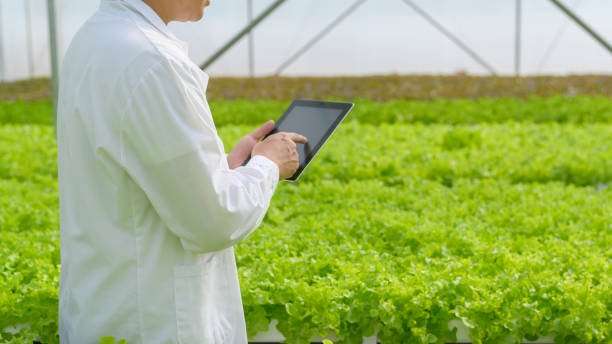
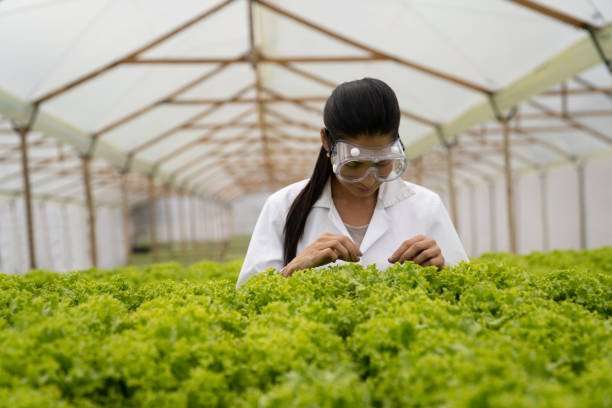
Optimizing Resource Utilization
AI algorithms assist farmers optimize using important resources including water, fertilizers, and strength. By thinking about factors like weather conditions, soil moisture ranges, and plant requirements, AI structures can provide tips at the optimum amount and timing of resource utility. This reduces waste and ensures green usage, benefiting both the surroundings and farmers’ profitability.
Water shortage is a tremendous situation in agriculture, and AI can assist in green irrigation control. AI-powered sensors and weather statistics evaluation allow farmers to agenda irrigation based totally on real crop desires and weather forecasts. This prevents over-irrigation, minimizes water wastage, and conserves this treasured aid.
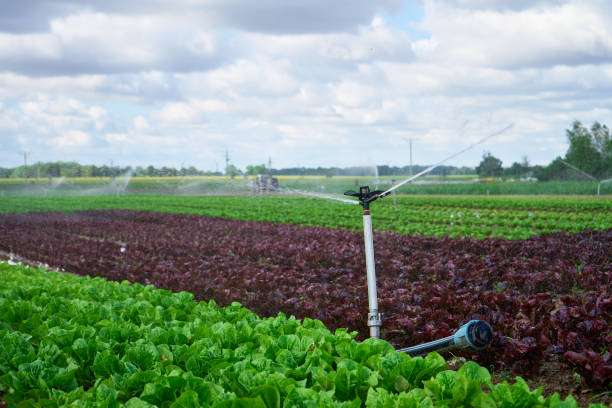

Enhancing Crop Breeding
AI techniques, along with machine gaining knowledge of and genetic algorithms, are reworking crop breeding packages. By studying giant amounts of genetic and environmental information, AI can become aware of proper trends in plants and boost up the breeding system. This ends in the improvement of advanced crop varieties with better yields, resistance to diseases, and adaptability to converting climatic situations.
AI-Powered Pest Control
Conventional processes to pest control regularly entail the significant software of pesticides, resulting in capability damage to superb bugs and the encompassing atmosphere. AI-based pest manipulate structures use clever sensors and photograph recognition to perceive specific pests correctly. This allows targeted and precise utility of insecticides, reducing chemical usage and minimizing ecological damage.
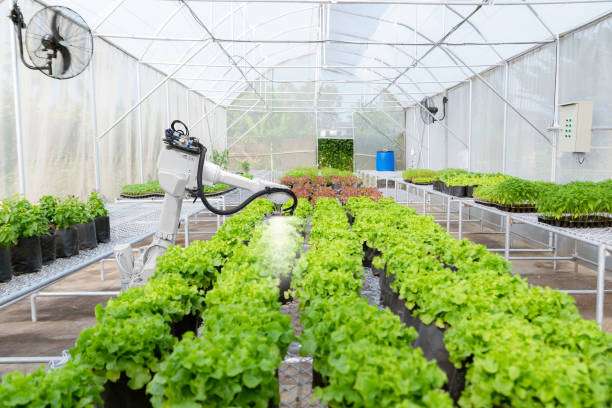
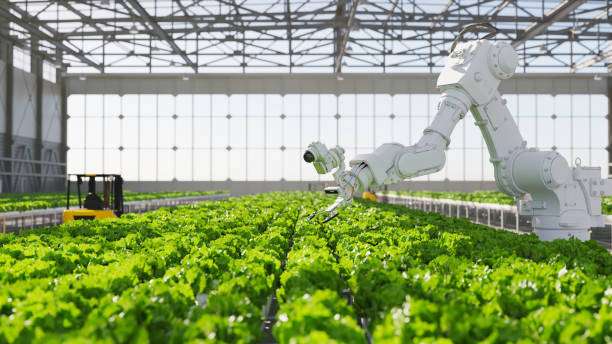
Automated Harvesting
AI-powered robots and automated structures are revolutionizing the harvesting process. With superior laptop imaginative and prescient and robot technologies, AI systems can detect ripe end result or greens and carry out unique harvesting operations. Automated harvesting reduces exertion prices, will increase efficiency, and minimizes publish-harvest losses.
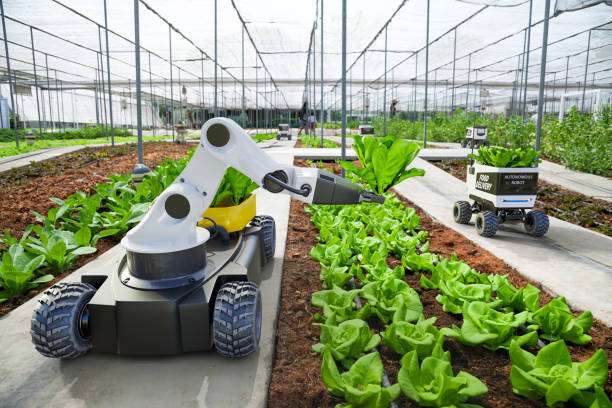
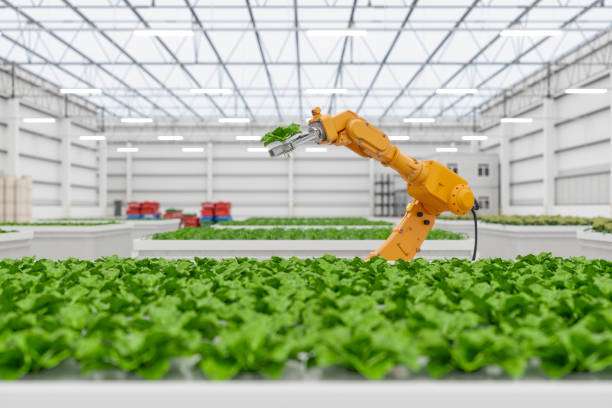
Robotic Farming
Robotic farming includes the usage of AI-powered robots to carry out numerous agricultural responsibilities. These robots can sow seeds, weed fields, monitor crop health, and perform other labor-in depth activities. Robotic farming reduces the dependency on human hard work, will increase productivity, and enables specific and well timed operations.
Smart Greenhouses
AI can optimize the surroundings inside greenhouses to ensure top of the line plant increase. AI-powered structures reveal and control elements which include temperature, humidity, mild intensity, and CO2 degrees. By maintaining foremost situations, clever greenhouses enhance crop yields and decrease resource wastage.
Improving Supply Chain Efficiency
AI technology can improve the efficiency of the rural delivery chain. AI algorithms analyze records from various resources, along with weather forecasts, marketplace traits, and transportation logistics, to optimize supply chain operations. This results in decreased food waste, advanced stock control, and higher coordination among farmers, vendors, and shops.
Data Analytics for Decision-Making
AI permits farmers to make statistics-driven selections by analyzing giant amounts of agricultural facts. By processing historic and actual-time facts, AI structures provide valuable insights into crop overall performance, market developments, and aid utilization. This empowers farmers to make knowledgeable picks, optimize farming practices, and maximize profitability.
Climate Change Adaptation
Climate change poses widespread challenges to agriculture, however AI (AI Boosts Agriculture Sustainability) can help farmers adapt to converting conditions. AI models can examine climate records and are expecting the effect of climate exchange on crops. This record lets farmers put in force adaptive measures, consisting of converting planting dates or adopting weather-resilient crop types, to mitigate the dangers related to weather change.
AI Ethical Considerations
The integration of AI in agriculture increases moral considerations that want to be addressed. Issues including facts, privateness, algorithmic bias, and the impact on rural communities must be carefully evaluated. Stakeholders want to make sure that AI technologies are deployed responsibly and equitably, respecting the rights and well-being of all worried.
AI in Livestock Farming: Improving Animal Welfare
AI has additionally discovered packages in farm animals farming, improving animal welfare and optimizing production. Sensors and wearable devices prepared with AI algorithms can reveal the health and conduct of cattle, locate signs of distress or infection, and provide actual-time insights to farmers. This enables early intervention and customized care, mainly to progress animal welfare results.
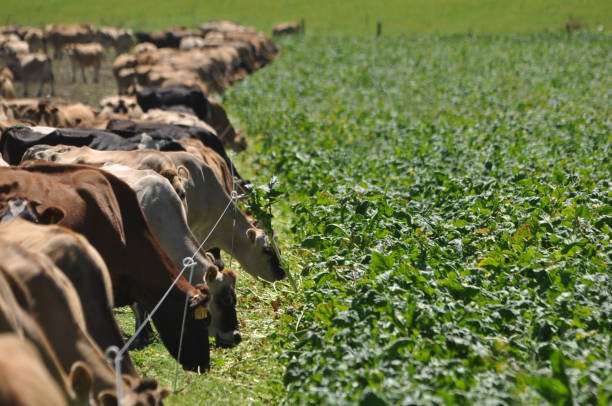
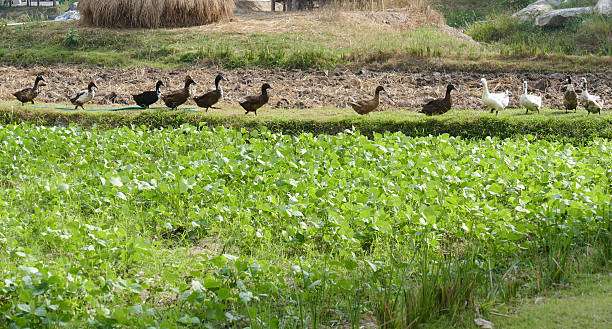
The Impact of AI on Food Security
With a swiftly growing international populace, ensuring meals protection is a paramount situation. AI has the ability to optimize crop yields, are expecting market demands, and identify areas susceptible to meal shortages. By leveraging AI technology, policymakers can make knowledgeable choices, allocate assets successfully, and address meal security demanding situations.
Challenges and Limitations of AI in Sustainable Agriculture
While AI holds great promise for sustainable agriculture, it additionally faces numerous challenges. Data privacy issues, lack of infrastructure in rural regions, and restricted access to AI technology pose boundaries to large adoption. Additionally, ethical concerns surrounding facts usage, algorithm bias, and equitable get entry to AI-driven solutions need to be addressed.
The Role of Government and Stakeholders
Collaboration among governments, agricultural establishments, generation groups, and farmers is vital for harnessing the total capacity of AI in sustainable agriculture. Governments have to put money into studies and development, create supportive policies, and foster partnerships to ensure the equitable distribution and accessibility of AI technology. Stakeholders need to actively have interaction in information sharing, ability building, and moral frameworks to drive sustainable agricultural practices.(AI Boosts Agriculture Sustainability)
Conclusion
The convergence of sustainable agriculture(AI Boosts Agriculture Sustainability) and AI affords a first rate possibility to build a greener and more resilient food machine. By harnessing the strength of AI, we will optimize useful resource allocation, lessen environmental impact, and enhance productivity in farming practices. However, it’s essential to address demanding situations inclusive of statistics, privateness, infrastructure gaps, and ethical considerations to ensure a sustainable and inclusive agricultural transformation.
